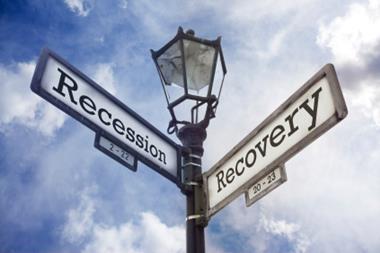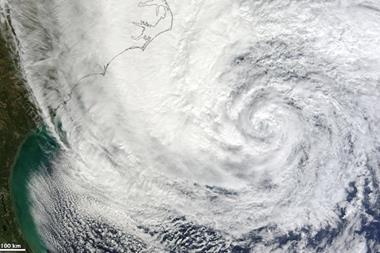Worries over further severe energy market disruption have eased at the same time as China’s Covid reopening
While economic data continue to paint a relatively downbeat picture, the latest evidence doesn’t suggest that economies are entering a deeper slump, according to the Q1 Risk Survey from Oxford Economics.
A successful China Covid reopening is now seen as the single largest upside risk in the near term, cited by more than a quarter of respondents (27%).
Some downside risks – for example related to the potential rationing of natural gas in Europe – also appear to have diminished. A fifth or more businesses cite reduced energy market disruption and early policy rate cuts as the key upside risks over the next two years.
Sentiment improves
The latest survey suggests that, against this backdrop, businesses have become less pessimistic over the global economic outlook.
The improvement in sentiment largely reflects a more positive outlook from multinational businesses and those primarily focused on Europe and North America.
While risks are still generally seen as weighted to the downside, the net balance – those viewing risks as to the downside less those viewing risks as to the upside – is the least negative since the thinktank first asked this question in 2017.
The mean expectation for world GDP growth in 2023 now stands at 1.6%, up from 1.5% in December. The rise largely reflects a reduction in the perceived chance of extremely weak growth this year.
But geopolitical fears are growing
Energy market fears have faded, but geopolitical concerns are on the rise.
Businesses generally expect a China-Taiwan conflict to occur in the coming years, accompanied by US-China decoupling. And a high proportion of businesses (79%) do indeed expect both risks to materialise over the next five years.
Unlike many experts, most businesses also judge that a Russia-NATO conflict is more likely than not.
Almost three-quarters of respondents cite geopolitical risks – for example, related to Russia-NATO, China-Taiwan – as a very significant risk to the global economy over the medium term.
Climate change and debt other key concerns
Climate change also remains a prominent medium-term concern. In addition, as last quarter, around a third of businesses cite risks related to high debt levels, such as the potential for significant property market corrections.
The latest quarterly survey was conducted between January 12-26. It was completed online by 204 businesses, primarily Oxford Economics’ clients, and covered a wide range of sectors and geographical regions.
The largest sectors by number of respondents were financial institutions (26%); industrial manufacturing and materials (19%); professional and business services (19%); and real estate, real estate finance, and infrastructure (10%).
By region, Europe (37%), North America (26%), and Asia Pacific (10%) were most dominant, though 18% of respondents reported that their business was multinational rather than having a primary geographical focus.




















No comments yet